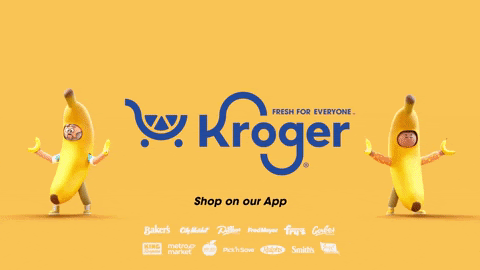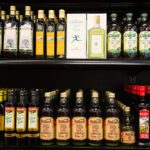
| While Musk’s $44 billion Twitter takeover is filling headlines with layoffs and reported chaos, Kroger’s proposed $25 billion acquisition of Albertson’s will likely have way bigger daily impact on the average American’s life. If this merger goes through, everyone (regardless of your store of choice) will feel the impact more than which twitter accounts get a blue checkmark on their handle. Today, Walmart is America’s lead grocer that controls 22% of the grocery market. Kroger and Albertsons both include several major brands, making them the top two stand-alone grocery retailers. Their merger would give them 13% of the market. This merger would put 35% of the grocery sector in the hands of two brands instead of three competitors. It’s not a monopoly… yet. Kroger’s and Albertsons announced their merger plans last month, fully aware of the anti-trust laws they will have to contend with to finalize the acquisition so it wouldn’t be official until 2024 at the earliest. It may feel far away, but if this goes through it will hit everyone’s food options, famers, and shopper’s wallets. Here’s what to expect: Groceries Will Be More Expensive: “Because fewer companies will control the lion’s share of the market” this merger will drive up grocery prices. There will be an initial price drop as they streamline, but once the market is more controlled prices will go back up higher than they were before the merger. (-Forbes) Disadvantaging Food Producers: “When one chain controls a large share of the grocery market, it can pressure its suppliers – from Procter & Gamble to family farms – to charge less for the goods they sell. These suppliers, in turn, will charge smaller and independent merchants more. And those merchants pass the cost on to shoppers.” (-Forbes) Further, the major producers will likely survive, but this will likely push out smaller farms with better practices into bankruptcy. Private Labels: It will further push out independent food producers who aren’t in the Kroger-Albertsons system. It will give farmers less choices in farming practices (think: chemicals) in order to compete with mega-corporate food producers. Food Deserts: The closure of 400 stores to get around anti-trust laws would increase food (and pharmacy) deserts in urban, low-income neighborhoods by closing stores and driving out independent stores. Creating a Chain Effect: If the merger happens, it would most likely pressure other smaller grocery chains to consolidate in order to be able to compete. All of the above problems get worse. Of course, this merger will mostly benefit Albertson’s shareholders, specifically a private equity group that holds the most Albertson shares. This week a Seattle judge stopped a $4 billion payment transfer from Kroger to Albertsons which both parties deny is an initial payment for the merger (…but it totally is). A court date is set for November 17th. In the words of a WA state lawyer, this gives prosecution very little time to prepare. There will probably be more stopgaps along the way, but if Washington State regulators lose the upcoming case, it could be essentially game over for anti-monopoly regulators. Brooke’s Take: In our current food system, the retailers are the gate that controls access of the public to food. Very few people today have access to land or real products like they would have in 1950s. The “shop local” and farmer’s market trends may look like an overpriced trend, but this is why they matter. They create a choice to access real food and keep real farms in business. Farms are not factories but streamlining the majors makes food production harder on farmers who aren’t treating their farm like a factory to survive. Additionally, I would speculate that this merger gives this conglomerate more lobbying power to keep chemicals, carcinogens, and toxins that are illegal in most first world countries in our food, allow for misleading marking and labels, and take no accountability for the health repercussions on the public at large. |


